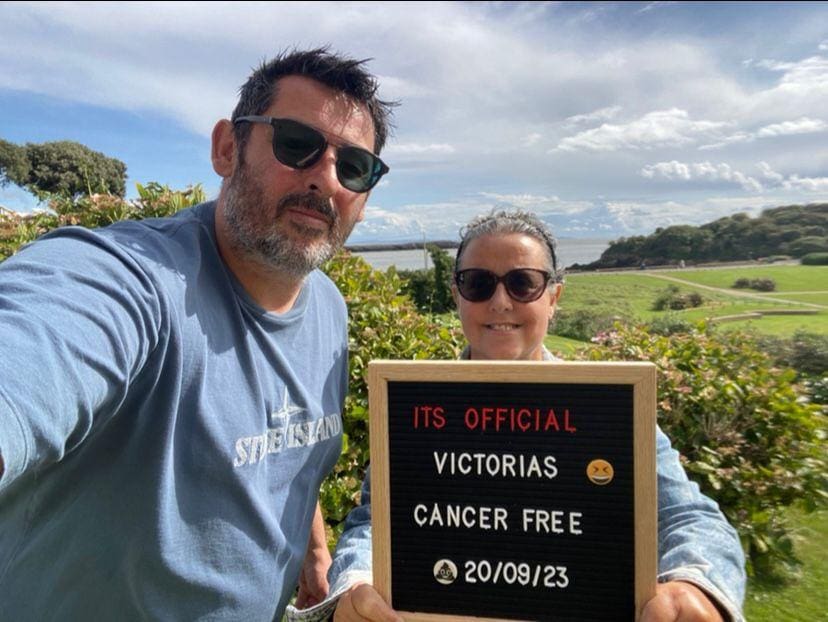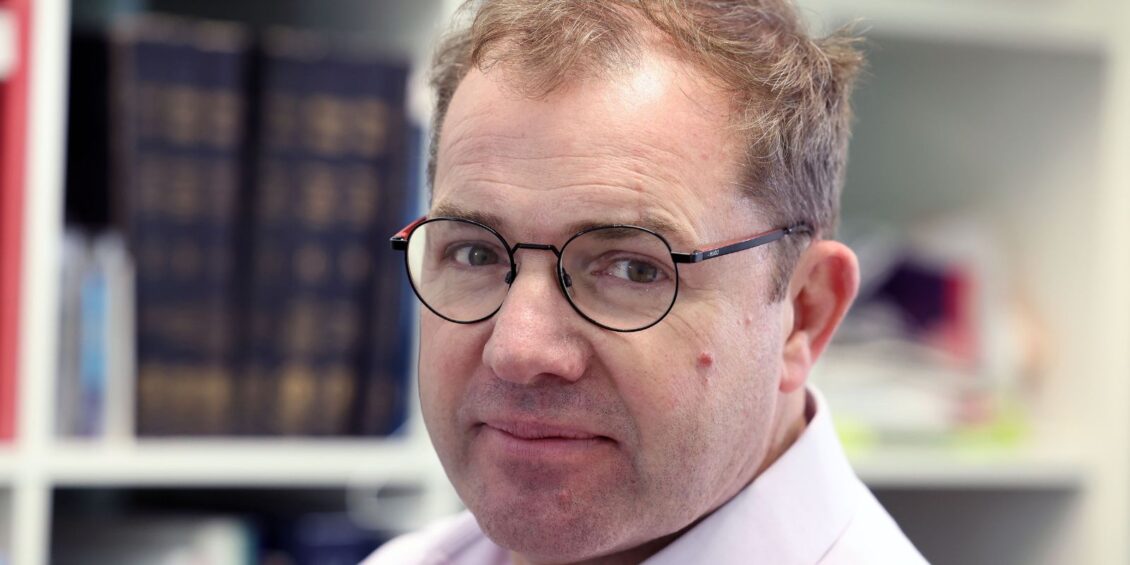An organisation which has been funding a life-extending treatment for patients in Wales with advanced bowel cancer is calling for NHS Wales to step in to provide access to surgery which can extend lives by up to five years.
Moondance Cancer Initiative is currently funding specialist treatment in Wales for patients whose bowel cancer has spread to the peritoneum – the lining of the abdomen. The life-saving treatment is routinely funded by the NHS in England, Scotland and Northen Ireland, but patients in Wales currently rely on a newly introduced service established with Moondance’s support.
Over 40 patients across Wales have received the treatment since the All-Wales Colorectal Peritoneal Metastasis Service was set up in May 2022. An additional 250 patients have been referred for consideration, with expert advice provided to support their ongoing care. Bowel cancer claims over 900 lives in Wales each year.
The treatment, which combines cytoreductive surgery and hyperthermic intraperitoneal chemotherapy (HIPEC), is clinically proven to significantly improve outcomes.
Before Moondance funded the service in Wales, many eligible patients faced significant challenges in accessing this treatment. Previously, the only option was to seek case-by-case approvals to receive care in England, with some patients even moving out of Wales. When access to the treatment has not been possible, sadly the only remaining option has been palliative care.
Moondance’s Clinical Director, Professor Jared Torkington— also a Consultant Colorectal Surgeon at Cardiff & Vale University Health Board— urges NHS Wales to commit to long term funding of the service and secure its future for patients in Wales.
Victoria Reitze, 55, from Barry, was diagnosed with stage 4 colon cancer which had spread to her peritoneum and was offered palliative chemotherapy before the surgery became available to her under the all-Wales scheme.
“When they first told me it was just palliative chemo available to me, I had to put my end-of-life plan in place. We had to decide where I was going to die. I was going to have a living wake because I thought nobody’s going to have a party without me.”
Victoria underwent eight rounds of chemotherapy before becoming eligible for the surgery, which involved removing a number of organs, including more than half of her liver, part of her colon and a full hysterectomy.
“It was over a 10-hour operation and was gruelling. But thanks to the surgery I’m now cancer-free.”


Victoria has returned to work full time, and now enjoys travelling with her husband, having visited Madagascar and India since the successful surgery and treatment.
Diane Morgan, 74, from Llanharry, was the first patient to receive this treatment in Wales. A retired cleaner, Diane lives with her husband and is surrounded by her three adult children, seven grandchildren, and three great-grandchildren. After being diagnosed with bowel cancer in 2019 and undergoing surgery and chemotherapy, she was devastated when a routine scan in April 2022 revealed peritoneal metastasis.
“I was put in touch with the hospital and found out I was a prime candidate for the treatment,” Diane said. After initially being told she might need to travel for the procedure in Basingstoke, she was relieved when doctors confirmed that it could be done in Cardiff. Diane underwent the surgery the day after her 72nd birthday.
“I can’t praise them enough. It’s given me a new lease of life. I’m so grateful I’ve had it done.” Diane completed four additional chemotherapy sessions after surgery and now says she feels brilliant. Thanks to the treatment, Diane has been able to spend time with her three great-grandchildren, enjoying precious moments that would not have been possible otherwise.
The establishment of the All-Wales Colorectal Peritoneal Metastasis service has been led by Consultant Colorectal Surgeons, Jody Parker & Leigh Davies. To prepare for this role, Ms. Parker trained extensively at the Peritoneal Malignancy Institute Basingstoke, a recognised centre of excellence for this procedure in the UK. Under their leadership, the Welsh service has quickly achieved outcomes comparable to leading centres across the four nations, providing patients with world-class care close to home.
Hosted and delivered by Cardiff and Vale University Health Board, the service is open to eligible patients from all parts of Wales, ensuring equitable access across the nation.
Ms. Parker said: “Bringing this service to Wales has been a significant step forward in addressing the inequality in cancer care. Training at Basingstoke equipped me with the expertise to ensure Welsh patients receive the same high standards of care available elsewhere in the UK. It’s incredibly rewarding to see the positive impact this service is having on patients and their families.”
While the service has proven its value in extending both life and quality of life, providing treatment at a national level on this scale is unsustainable without NHS Wales funding. The current cost to refer patients for treatment outside of Wales can be up to three times higher than performing the procedures within NHS Wales. Sustainable funding would not only ensure equitable access but also represent a more efficient use of NHS resources.
Professor Jared Torkington, Clinical Director at Moondance Cancer Initiative, and Consultant Colorectal Surgeon at Cardiff & Vale University Health Board added: “Moondance Cancer Initiative have shown that this service is a lifeline for patients who would otherwise face very limited options. The outcomes we’re seeing in Wales match those of the best centres in the UK, proving that we can deliver this high-quality care locally. NHS Wales committing to fund this service permanently would not only save lives but also ensure that Welsh patients can access care close to home without unnecessary delays or financial barriers.”








Leave a Reply
View Comments